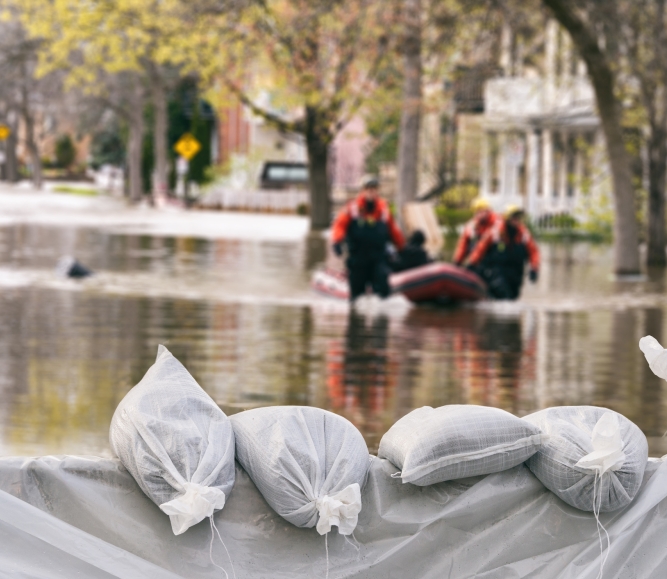FEMA releases nearly $1 billion in preparedness grants
Author

Brett Mattson

Naomi Freel
Upcoming Events
Related News

Key Takeaways
On August 1, the Federal Emergency Management Agency (FEMA) announced nearly $1 billion in new grant funding to help states, local governments, tribes and territories strengthen disaster preparedness. The release follows a June letter from NACo urging the U.S. Department of Homeland Security (DHS) to publish the FY 2025 Notices of Funding Opportunity (NOFOs) to ensure counties have ample time to plan and apply.
FEMA’s announcement marks the release of 15 preparedness-related NOFOs under programs. These competitive grant programs will support local efforts to prepare for a wide range of disasters, including wildfires, floods, hurricanes, cyberattacks and terrorist incidents.
Read FEMA’s NOFO Advisory Read NACo’s Letter
What do the grants support?
The FY 2025 preparedness grant cycle is aligned with five revised National Priority Areas set by the DHS Secretary with a focus on ensuring public safety and rule of law. These priorities include:
- Protecting soft targets and crowded places (including election sites)
- Supporting Homeland Security Task Forces and fusion centers
- Cybersecurity
- Election security (including citizenship verification for poll workers)
- Border crisis response and enforcement
Recipients of the Homeland Security Grant Program, including the Urban Area Security Initiative (UASI), must allocate at least 30 percent of their awards to these priority areas. Within this, a minimum of 10 percent must be spent on border crisis response and 3 percent on election security.
Available FY 2025 preparedness grants
On August 1, FEMA released NOFOs for the following 15 grant programs:
- Homeland Security Grant Program (HSGP) Urban Area Security Initiative
- Port Security Grant Program
- Transit Security Grant Program
- State and Local Cybersecurity Grant Program
- Tribal Cybersecurity Grant Program
- Regional Catastrophic Preparedness Grant Program
- Emergency Food and Shelter Program
- Tribal Homeland Security Grant Program
- Intercity Passenger Rail
- Intercity Bus Security Grant Program
- National Cybersecurity Preparedness Consortium
- Continuing Training Grant Program
- Alliance for System Safety of UAS through Research Excellence
- National Earthquake Hazards Reduction Program (NEHRP) Multistate and National Earthquake Assistance
- State Fire Training Assistance
How to apply
To apply for funding, counties should begin by reviewing the full Notices of Funding Opportunity (NOFOs), which are available on Grants.gov. Each NOFO outlines specific eligibility requirements, timelines and evaluation criteria. Applicants should identify the programs that best align with their preparedness and response goals and take note of any spending mandates tied to this year’s National Priority Areas. Once ready, applications must be submitted through the Grants.gov portal by the deadlines listed in each notice.
Related News

Information-sharing bill could protect court workers
The Countering Threats and Attacks on Our Judges Act could provide more than 30,000 state and local judges with access to security assessments, best practices and a database of threats made against colleagues in the justice field.

After historic winter storms, counties assess response
Counties in states that rarely receive much winter weather are assessing their responses to the January storm that left many covered in snow and ice.

California counties fight agricultural crime
Sheriffs' offices and prosecutors in California's central valley make specific efforts to prevent and prosecute crimes against the agricultural community.
Featured Initiative
Intergovernmental Disaster Reform Task Force
As disasters intensify across the country, county governments play a crucial role on the frontlines of emergency management and recovery. With a commitment to advancing federal policies that foster collaboration between counties, federal agencies and other intergovernmental partners, the Task Force builds on years of county-led efforts to enhance disaster policies and practices, driving improved outcomes nationwide.
